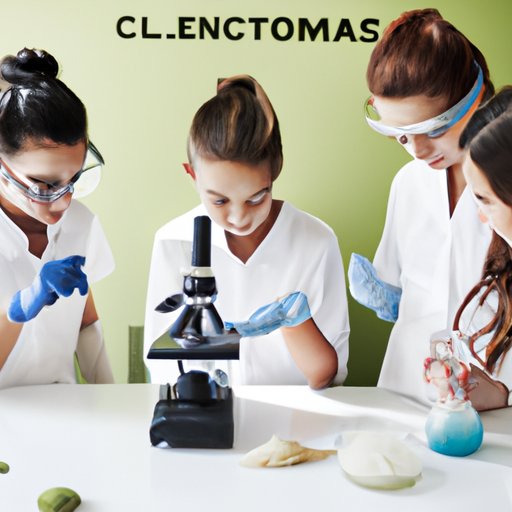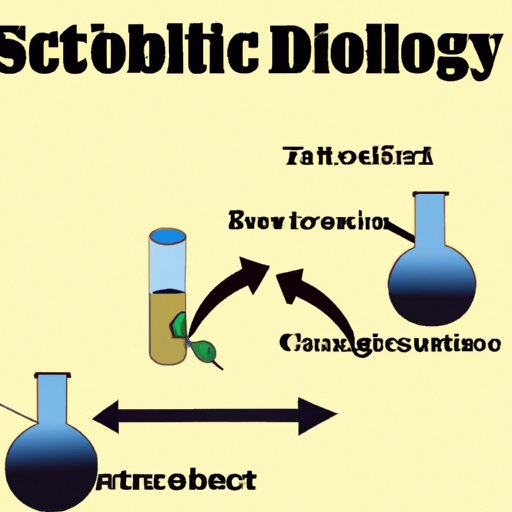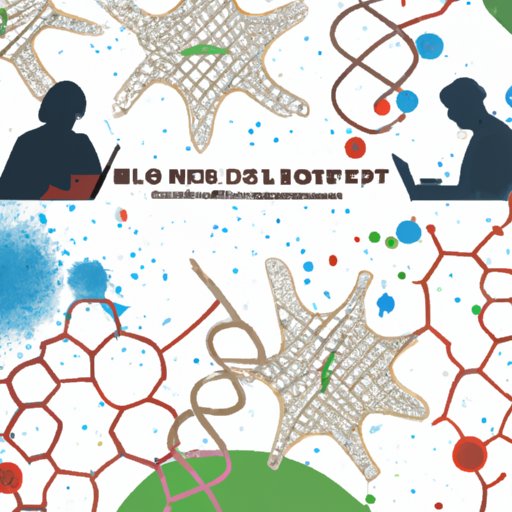Introduction
Biological science is a broad field of study that focuses on understanding the structure, function, and interactions of living organisms. It encompasses a wide variety of sub-disciplines, including genetics, physiology, ecology, cell biology, and more. This article will explore the basics of biological science, its role in problem solving, and its impact on society and our everyday lives.

Exploring the Basics of Biological Science
To begin, let’s take a look at what biological science is and the different branches it covers.
What is Biological Science?
Biological science is a scientific discipline that studies living organisms and their relationship to one another and their environment. This includes understanding how different organisms interact with each other, how they grow and develop, and how they respond to changes in their environment. Biological science also looks at the evolution of life and the diversity of species.
The Different Branches of Biological Science
Biological science can be divided into several different branches. These include genetics, which focuses on the study of heredity and variation; physiology, which looks at the functioning of living organisms; ecology, which studies the relationships between organisms and their environment; and cell biology, which examines the structure and function of cells. Other branches of biological science include biochemistry, microbiology, evolutionary biology, and developmental biology.

How Biological Science is Used to Solve Problems
Now that we have a better understanding of what biological science is, let’s explore how it can be used to solve problems.
The Role of Biological Science in Problem Solving
Biological science can be used to solve a variety of problems, from understanding the causes of diseases to finding solutions to environmental issues. For example, research conducted by the National Institutes of Health has shown that genetic factors play a role in the development of certain diseases, such as cancer. By understanding the genetic basis of these diseases, scientists can develop treatments that target specific genes and proteins involved in the disease process.
Examples of Biological Science in Action
Biological science is also used to address environmental issues, such as climate change. For example, scientists are using genetic engineering to create plants that can tolerate extreme temperatures and drought conditions. Additionally, researchers are studying the effects of pollutants on ecosystems, looking for ways to reduce their impact. By understanding the effects of human activities on the environment, scientists can develop strategies to reduce their negative impacts.
Examining the Role of Biological Science in Society
Now that we’ve explored how biological science can be used to solve problems, let’s take a look at its role in society.
Understanding the Impact of Biological Science on Society
Biological science has a significant impact on society. From developing new medicines and treatments for diseases to creating sustainable agricultural practices, biological science is essential for improving the quality of life in our communities. Additionally, by understanding the genetic basis of diseases, scientists can develop targeted treatments that can improve patient outcomes.
Investigating the Benefits of Biological Science
In addition to its practical applications, biological science can provide insights into the complexity of life and our place in the world. By understanding the evolution of life and how organisms interact with their environment, we can gain a better appreciation of our own existence and the importance of preserving biodiversity. As biologist E.O. Wilson said: “The richness of the natural world consists of more than the sum of its parts.”
Discovering the Benefits of Studying Biological Science
Now that we’ve examined the role of biological science in society, let’s explore the benefits of studying it.
Developing Critical Thinking Skills
Studying biological science can help students develop critical thinking skills. By exploring the complexities of life, students can learn how to think analytically and develop solutions to complex problems. Additionally, by learning about the ethical implications of biological research, students can understand the importance of responsible scientific inquiry.
Gaining a Deeper Understanding of Our Environment
Biological science also provides an opportunity to gain a deeper understanding of our environment. By studying the interactions between organisms and their environment, students can learn how their actions affect the world around them. This can lead to a greater appreciation for the natural world and a better understanding of our responsibility to protect it.

Investigating the Impact of Biological Science on Our Everyday Lives
Finally, let’s examine how biological science impacts our everyday lives.
Applying Biological Science in Everyday Life
Biological science can be applied in a variety of ways in our daily lives. For example, the food we eat is produced using biological principles, such as genetics, nutrition, and food safety. Additionally, advances in medical science have allowed us to extend our lifespans and treat a variety of illnesses and conditions.
Understanding the Power of Biological Science
It’s important to recognize the power of biological science and its potential to improve our lives. By understanding the fundamentals of biological science, we can use this knowledge to make informed decisions about our health, the environment, and our future.
Conclusion
In conclusion, biological science is a vast and complex field of study that covers a wide range of topics. From understanding the causes of diseases to developing sustainable agricultural practices, biological science plays an important role in solving problems and improving our lives. Additionally, studying biological science can help us develop critical thinking skills and gain a deeper understanding of our environment. Ultimately, biological science serves as a reminder of the power of science and its ability to shape our lives.
(Note: Is this article not meeting your expectations? Do you have knowledge or insights to share? Unlock new opportunities and expand your reach by joining our authors team. Click Registration to join us and share your expertise with our readers.)
